
Discover the Charm of Dudelange
Nestled in the heart of Luxembourg, Dudelange is a quaint and charming city brimming with cultural treasures and natural beauty. Known for its rich history and vibrant community, this city offers a unique blend of old-world charm and modern amenities that make it a delightful destination for tourists. Explore the city's picturesque streets filled with historic buildings, cozy cafes, and boutique shops. The National Mining Museum offers a fascinating glimpse into the region's industrial past, while the local art galleries showcase contemporary works from local and international artists. Don't miss the stunning architecture of St. Martin's Church, a landmark that stands as a testament to the city's heritage. Nature enthusiasts will find plenty to love in Dudelange. The Haard-Hesselsbierg-Staebierg Nature Reserve is a haven for hikers and bird watchers, offering scenic trails and breathtaking views. For a more leisurely experience, visit Parc Le'h, a beautifully landscaped park perfect for picnics and relaxation. Whether you're exploring the great outdoors or immersing yourself in the local culture, Dudelange promises an unforgettable experience.
Local tips in Dudelange
- Visit the National Mining Museum to learn about the city’s industrial heritage.
- Stroll through Parc Le'h for a relaxing afternoon in a beautiful setting.
- Check out local art galleries to see works by both local and international artists.
- Explore the Haard-Hesselsbierg-Staebierg Nature Reserve for hiking and bird watching.
- Try local delicacies at the city's cozy cafes and restaurants.
Discover the Charm of Dudelange
Nestled in the heart of Luxembourg, Dudelange is a quaint and charming city brimming with cultural treasures and natural beauty. Known for its rich history and vibrant community, this city offers a unique blend of old-world charm and modern amenities that make it a delightful destination for tourists. Explore the city's picturesque streets filled with historic buildings, cozy cafes, and boutique shops. The National Mining Museum offers a fascinating glimpse into the region's industrial past, while the local art galleries showcase contemporary works from local and international artists. Don't miss the stunning architecture of St. Martin's Church, a landmark that stands as a testament to the city's heritage. Nature enthusiasts will find plenty to love in Dudelange. The Haard-Hesselsbierg-Staebierg Nature Reserve is a haven for hikers and bird watchers, offering scenic trails and breathtaking views. For a more leisurely experience, visit Parc Le'h, a beautifully landscaped park perfect for picnics and relaxation. Whether you're exploring the great outdoors or immersing yourself in the local culture, Dudelange promises an unforgettable experience.
When is the best time to go to Dudelange?
Iconic landmarks you can’t miss
Monument of Remembrance
Explore the Monument of Remembrance in Luxembourg City, a poignant tribute to valor, surrounded by stunning views and rich history.
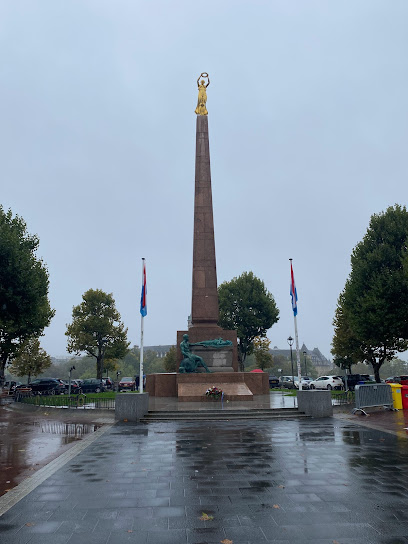
Place de la Constitution
Explore the historic Place de la Constitution in Luxembourg City, where stunning views and rich culture meet in a vibrant urban square.
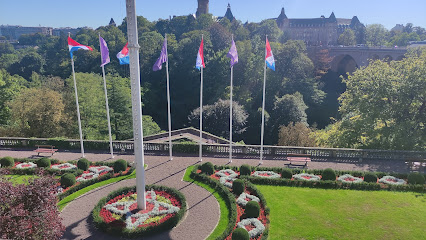
Parc Le'h
Discover the exquisite flavors of French cuisine at Parc Le'h in Dudelange, where culinary excellence meets a serene park ambiance.
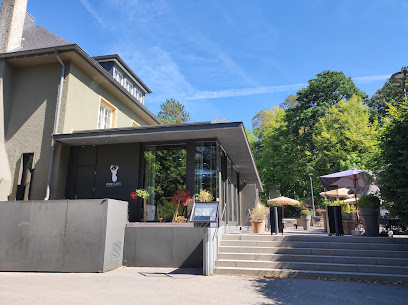
Parc Le'h Adventures Sàrl
Experience the thrill of rides and attractions at Parc Le'h Adventures, the ultimate amusement park in Dudelange for family fun and unforgettable memories.
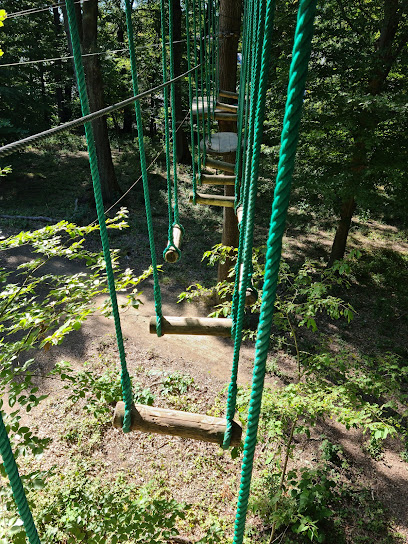
Parc Emile Mayrisch
Experience the tranquility of Parc Emile Mayrisch, where nature and relaxation come together in the heart of Dudelange.
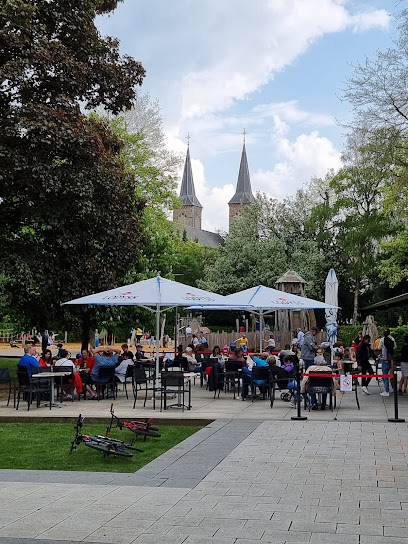
Cottage Logis Hôtel - Restaurant
Experience the charm of Dudelange at Cottage Logis Hôtel - Restaurant, where comfort meets exquisite local cuisine in a cozy setting.
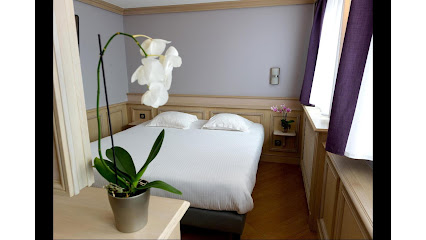
Monument to Dicks and Lentz
Explore the Monument to Dicks and Lentz in Luxembourg City, a cultural landmark that showcases the rich history and courage of its heroes amidst a serene square.
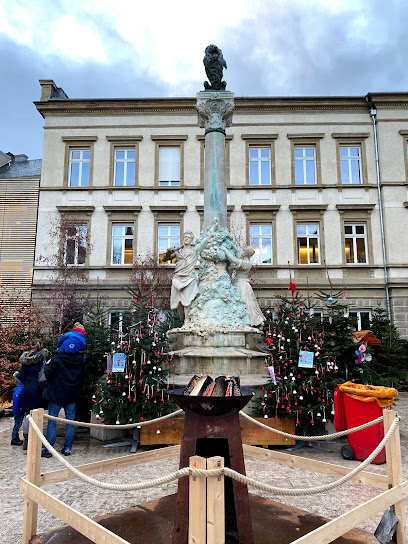
Statue of the Grand Duchess Charlotte
Discover the grandeur of the Statue of the Grand Duchess Charlotte, a symbol of Luxembourg's rich history and cultural heritage in the heart of the city.
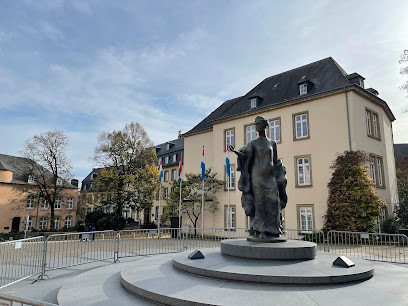
Enigmo Escape Rooms
Experience the excitement of Enigmo Escape Rooms in Dudelange – an interactive adventure that challenges your mind and teamwork skills in thrilling escape scenarios.
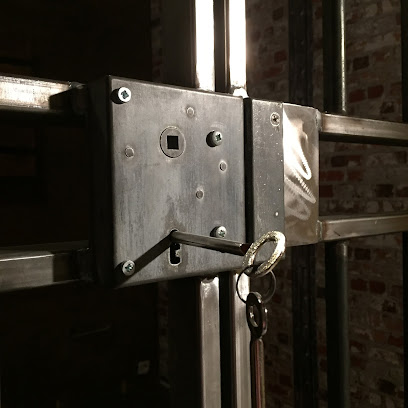
Saint Martin Kierch
Discover the stunning architecture and serene atmosphere of Saint Martin Kierch, a historical Catholic church in Dudelange, Luxembourg.
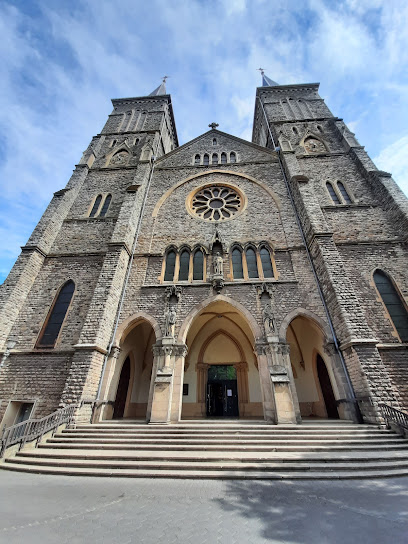
Château Fort Le Mont-Saint-Jean de Dudelange
Discover the charm of Château Fort Le Mont-Saint-Jean, a captivating historical landmark in Dudelange, Luxembourg, perfect for history lovers and scenic walks.
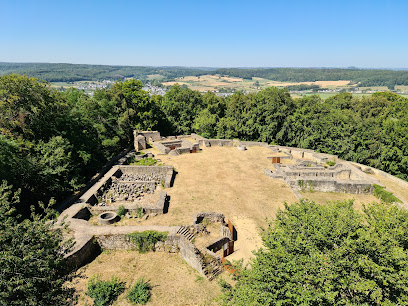
D-Summit
Experience thrilling rock climbing at D-Summit in Dudelange, a premier gym for all skill levels, blending safety with excitement and community.
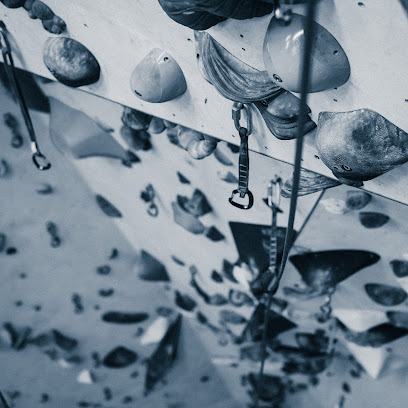
Monument national des Mineurs
Explore the Monument National des Mineurs in Kayl, a captivating tribute to the region's mining history and heritage.
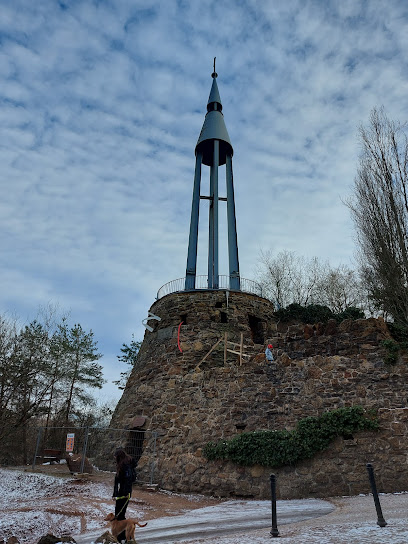
Parc Le'H Dudelange
Experience the lush beauty and tranquility of Parc Le'H Dudelange, a perfect escape for nature lovers and families in Luxembourg.
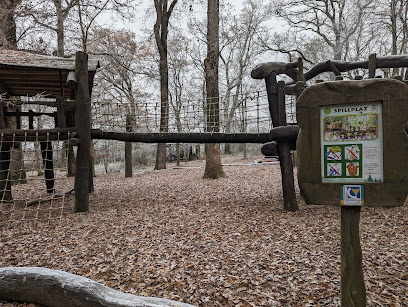
Goethe plaque
Discover the Goethe Plaque, a historical landmark in Pafendall, Luxembourg, celebrating the literary genius of Johann Wolfgang von Goethe.
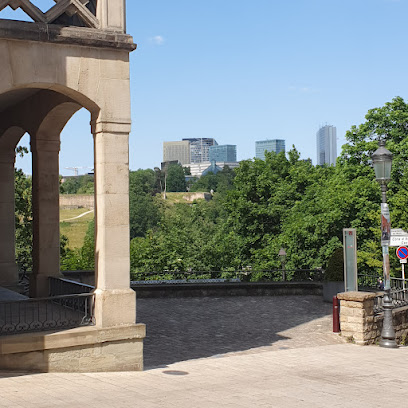
Unmissable attractions to see
Metz Cathedral
Explore Metz Cathedral, a stunning Gothic masterpiece with breathtaking stained glass and rich history in the heart of Metz, France.
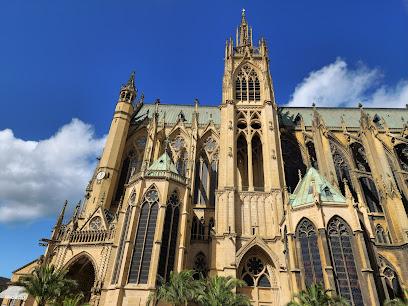
Casemates du Bock
Discover the fascinating Casemates du Bock, a UNESCO World Heritage site showcasing Luxembourg's military history and breathtaking views.
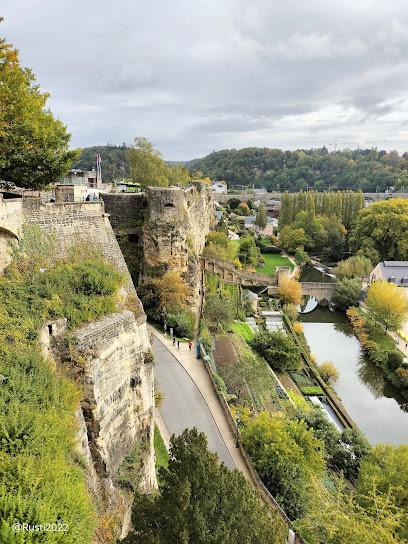
Parc Merveilleux
Experience the magic of nature and fun at Parc Merveilleux, a perfect family-friendly destination in Bettembourg, Luxembourg.
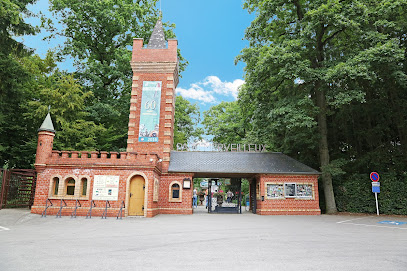
Pont Adolphe
Discover the architectural splendor and breathtaking views at Pont Adolphe, a must-visit bridge in Luxembourg's charming capital city.
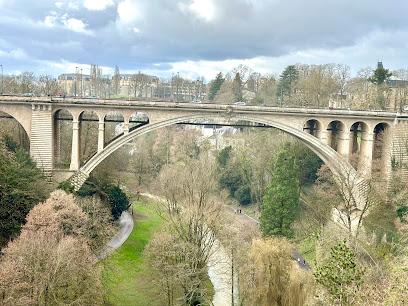
Centre Pompidou-Metz
Discover the remarkable fusion of contemporary art and innovative architecture at Centre Pompidou-Metz, a cultural gem in Metz, France.
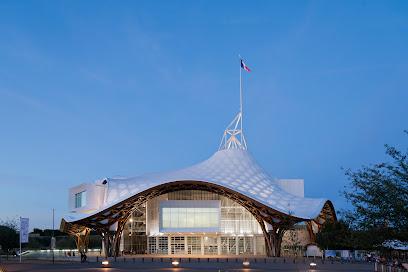
Panoramic Elevator of the Pfaffenthal
Discover breathtaking views and convenient access at the Panoramic Elevator of the Pfaffenthal in Luxembourg City, an iconic experience not to be missed.
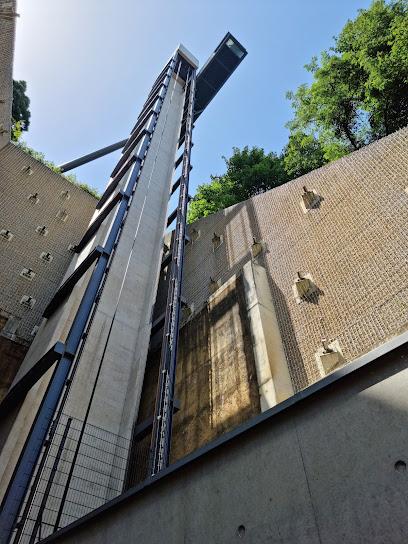
Cathédrale Notre-Dame
Discover the architectural splendor of Cathédrale Notre-Dame, a must-visit landmark in Luxembourg City, blending rich history with stunning design.
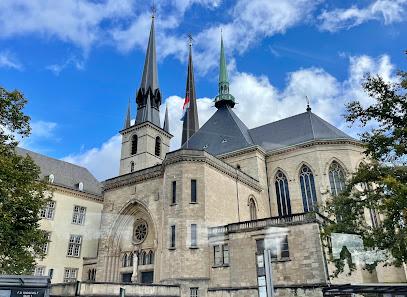
Palais Grand-Ducal
Discover the grandeur of Luxembourg's royal history at the Palais Grand-Ducal, an architectural gem and a must-see tourist attraction.
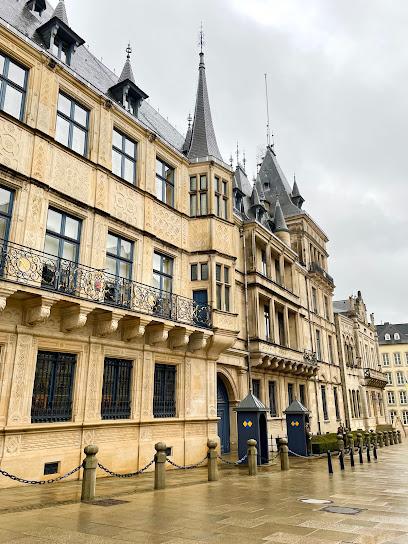
Schiessentümpel Waterfall
Discover the enchanting Schiessentümpel Waterfall, a natural wonder in Luxembourg's Mullerthal region, perfect for hiking and tranquil moments in nature.

William Square
Discover the vibrant ambiance and rich history of William Square, a central landmark in Luxembourg City that embodies the culture and charm of the region.
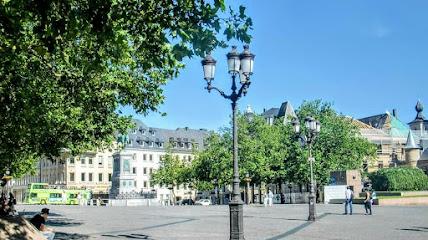
German Gate
Experience the historical splendor of the German Gate in Metz, a stunning landmark showcasing Renaissance architecture and rich cultural heritage.
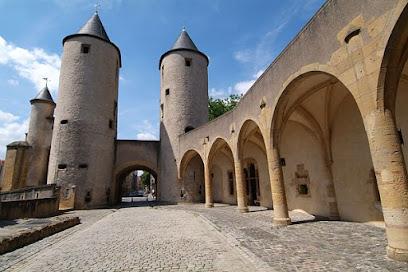
Mudam Museum of Modern Art
Explore the Mudam Museum of Modern Art in Luxembourg, a stunning architectural marvel showcasing contemporary art from around the world.
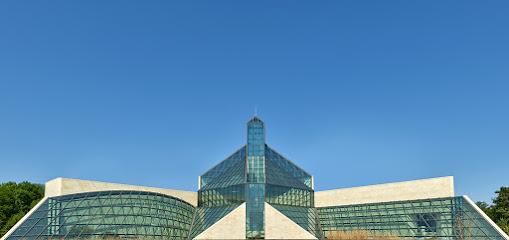
Philharmonie Luxembourg
Experience world-class performances in a stunning architectural marvel at the Philharmonie Luxembourg, a cultural gem in the heart of the city.
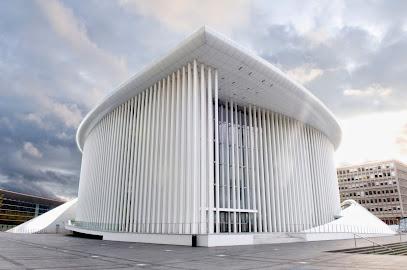
Neumünster Abbey
Explore Neumünster Abbey, a cultural center in Luxembourg blending history, art, and live music in a breathtaking historical setting.
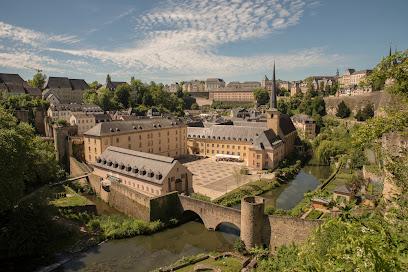
Place de la Constitution
Explore Place de la Constitution, a vibrant square in Luxembourg City offering stunning views, historical monuments, and a lively atmosphere perfect for tourists.
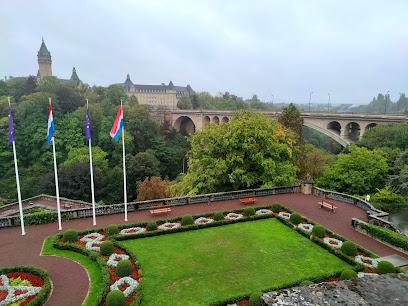
Essential places to dine
Restaurant-Pizzeria Gigi l'Amoroso
Experience authentic Italian flavors at Restaurant-Pizzeria Gigi l'Amoroso in Dudelange - where every meal feels like a celebration.
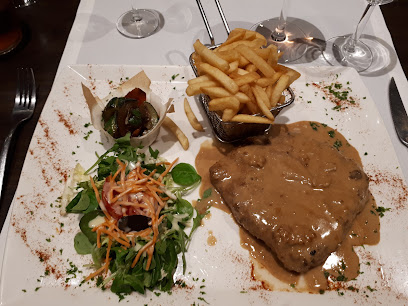
Restaurant Garibaldi
Experience authentic Italian cuisine at Restaurant Garibaldi in Dudelange, where flavor meets tradition in a cozy setting.
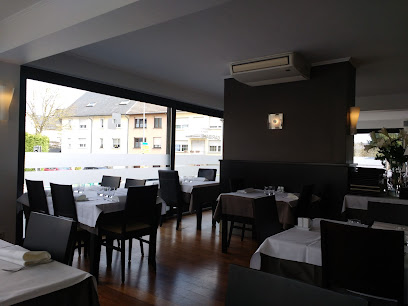
Parc Le'h
Discover the exquisite flavors of French cuisine at Parc Le'h in Dudelange - where fresh ingredients meet culinary artistry.
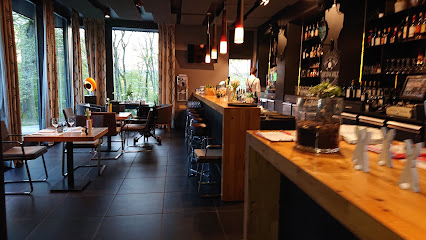
Restaurant Antica Bari
Discover authentic Italian flavors at Antica Bari in Dudelange - renowned for delicious pizzas and exquisite dining experiences.
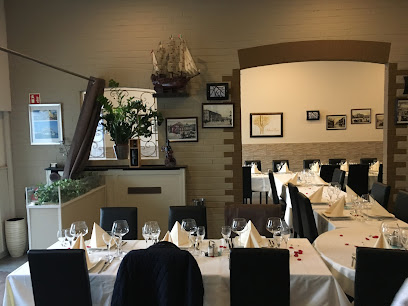
Mad About Perú
Discover authentic Peruvian flavors at Mad About Perú in Dudelange – a culinary gem celebrating the rich traditions of Peru.
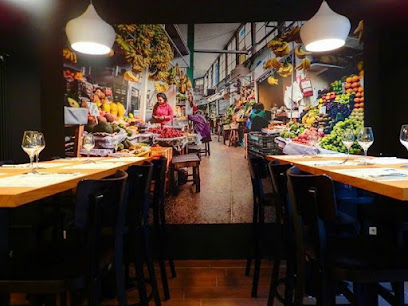
Mamma Mia
Experience authentic Italian flavors at Mamma Mia in Dudelange - where every bite feels like a trip to Italy.
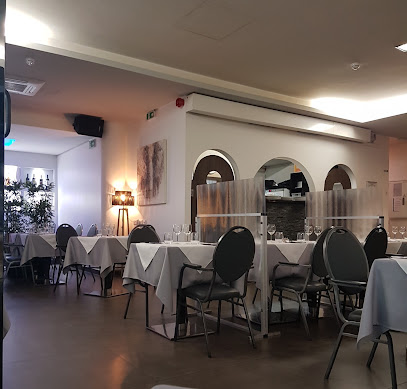
Cottage Logis Hôtel - Restaurant
Experience exquisite local cuisine at Cottage Logis Hôtel - where comfort meets culinary excellence in Dudelange.
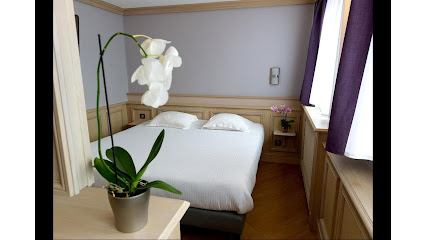
Restaurant Belle City
Experience exquisite Chinese cuisine and fresh sushi at Restaurant Belle City in Dudelange – a true culinary delight!
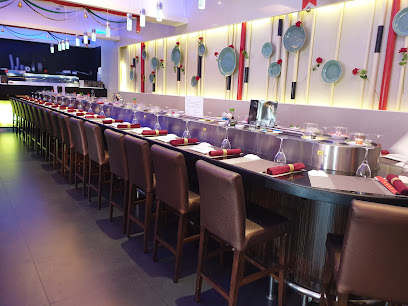
MontChalet Bistro • Brasserie
Experience culinary excellence at MontChalet Bistro, where local flavors meet international cuisine in a charming setting.
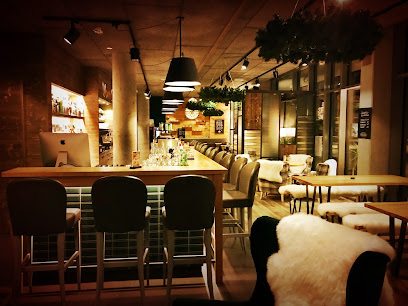
Hôtel, Restaurant Brasserie La Charbonnade
Experience the best of French cuisine at Hôtel, Restaurant Brasserie La Charbonnade in Dudelange - where flavor meets comfort.
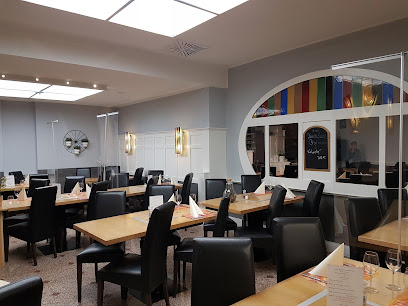
Restaurant Gamja
Discover authentic Korean cuisine at Restaurant Gamja in Dudelange - where every dish tells a story.
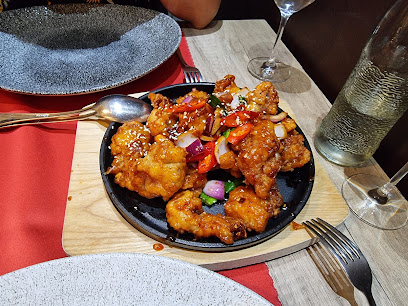
Table du Chef
Experience exceptional local cuisine at Table du Chef in Dudelange – where tradition meets modern culinary art.
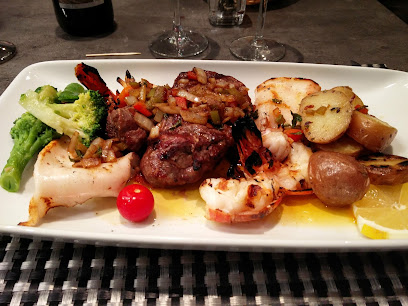
Royal Kebab Dudelange
Experience authentic Mediterranean flavors at Royal Kebab Dudelange - where every meal is a delightful journey through culinary excellence.
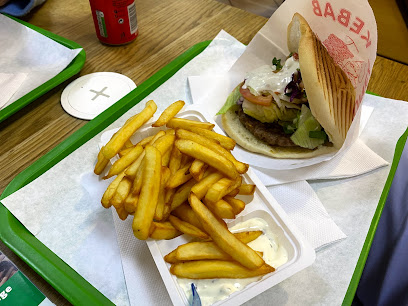
Stones Steak House
Discover unparalleled steakhouse dining at Stones Steak House in Dudelange – where flavor meets sophistication.
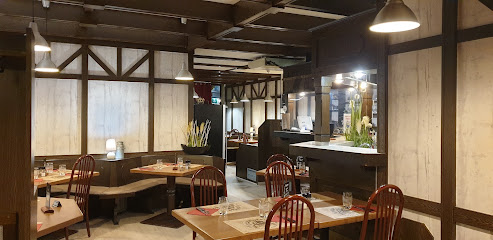
Restaurant Kathmandu
Experience authentic Nepalese and Indian flavors at Restaurant Kathmandu in Dudelange – a culinary journey awaits!
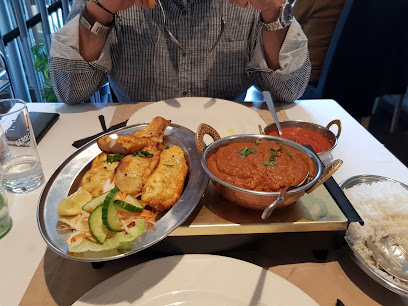
Markets, malls and hidden boutiques
ALDI
Explore ALDI in Dudelange, your go-to supermarket for affordable local products and fresh groceries, perfect for budget-conscious travelers.
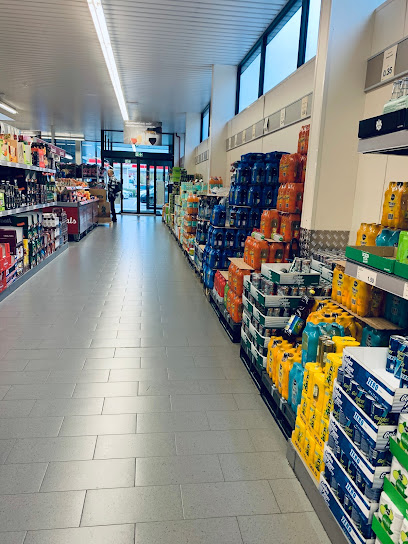
TRAFIC DUDELANGE
Explore TRAFIC Dudelange, a shopper's paradise in Luxembourg with diverse selections from fashion to home goods, perfect for every visitor.
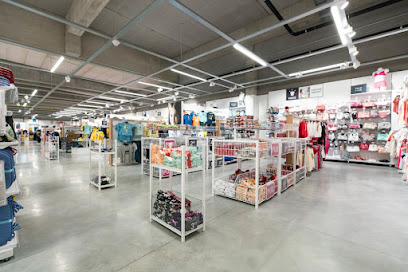
Tabasprix
Explore Tabasprix in Dudelange for an exceptional selection of tobacco and local beverages, perfect for souvenirs or personal indulgence.
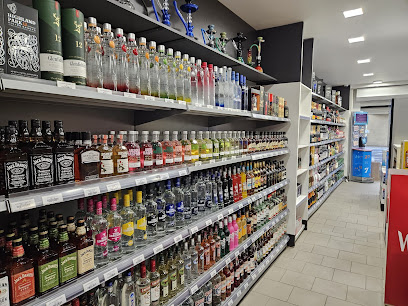
Proxy Delhaize
Experience local shopping culture at Proxy Delhaize in Dudelange, offering a variety of products from fresh produce to gourmet delicacies.
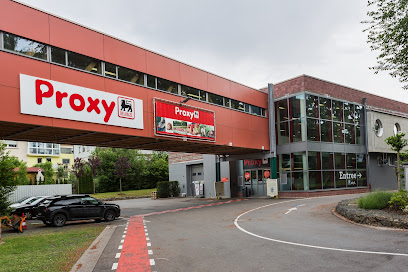
Zeeman Dudelange Avenue G.D. Charlotte
Explore Zeeman Dudelange for trendy, budget-friendly clothing that caters to all ages and styles while enjoying a vibrant shopping atmosphere.
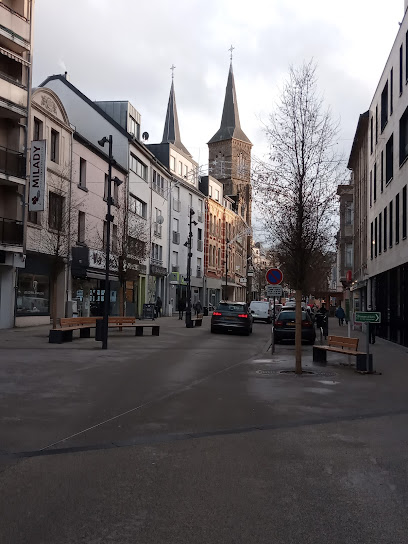
Parfumerie Paris 8
Explore exquisite fragrances and beauty supplies at Parfumerie Paris 8 in Dudelange, a haven for scent enthusiasts and beauty lovers alike.
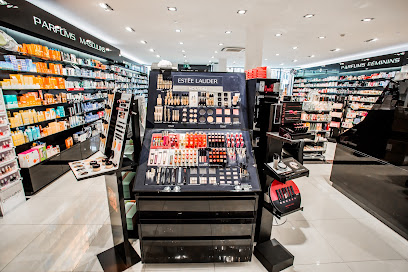
Surf'in
Explore Surf'in in Dudelange for the best in surf, skate, snow gear, and a vibrant community of outdoor enthusiasts.
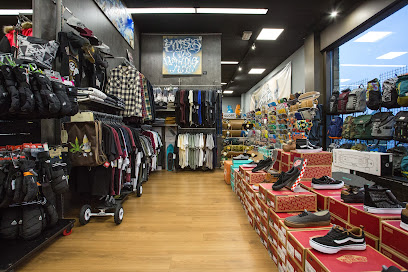
Citabel Sports (Dudelange)
Discover Citabel Sports in Dudelange: Your one-stop shop for premium sporting goods and apparel in Luxembourg's vibrant retail scene.
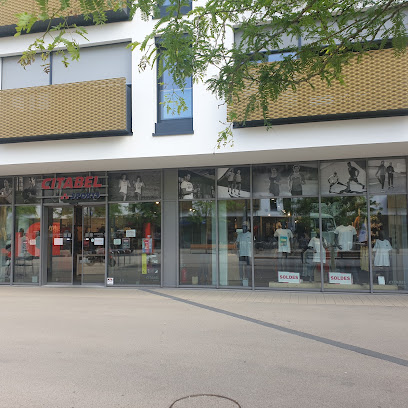
Corpo e Anima Dudelange CBD shop
Explore the serene world of CBD at Corpo e Anima Dudelange, where quality meets wellness in a charming shopping experience.
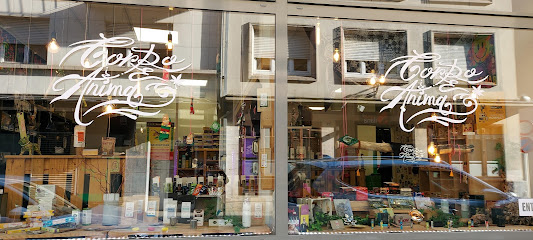
Parfumerie April Dudelange
Explore the finest beauty products and unique perfumes at Parfumerie April in Dudelange, a must-visit for beauty lovers and gift seekers.
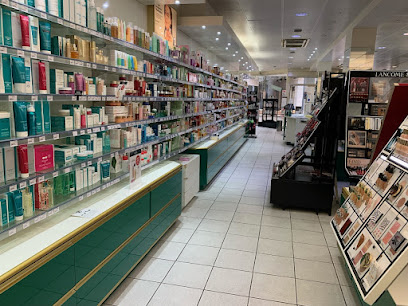
Cuir-Shop
Explore Cuir-Shop, a premier clothing store in Dudelange, specializing in leather goods, plus-size clothing, and fashionable shoes for all styles.
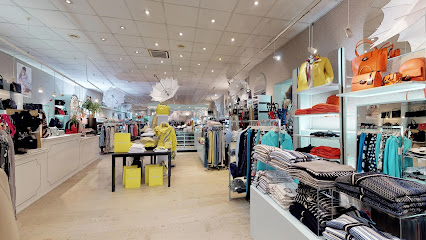
Tea and more Luxembourg
Experience a diverse selection of fine teas in a warm, inviting atmosphere at Tea and More, the perfect retreat for tea enthusiasts in Dudelange.
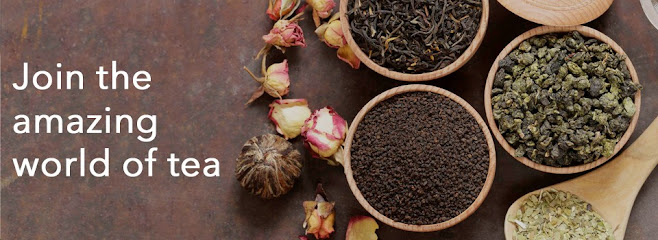
Album Concept Store
Explore the charm of Album Concept Store in Dudelange, where fashion meets comfort and delightful refreshments await.
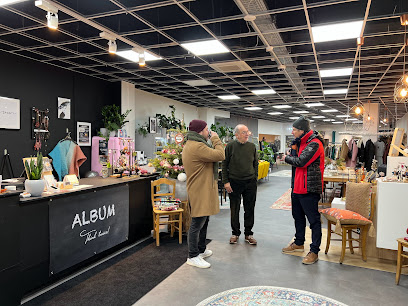
PARAMI
Discover unique fashion at Parami in Dudelange, a stylish clothing store offering a curated selection of apparel that reflects local charm.
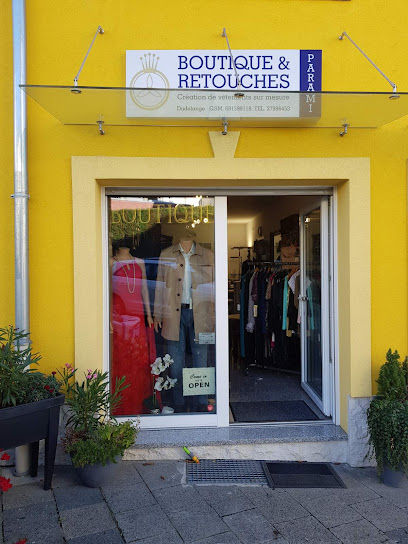
Lëtzhug
Explore Lëtzhug Gift Shop in Dudelange for unique local crafts and souvenirs that embody the spirit of Luxembourg.
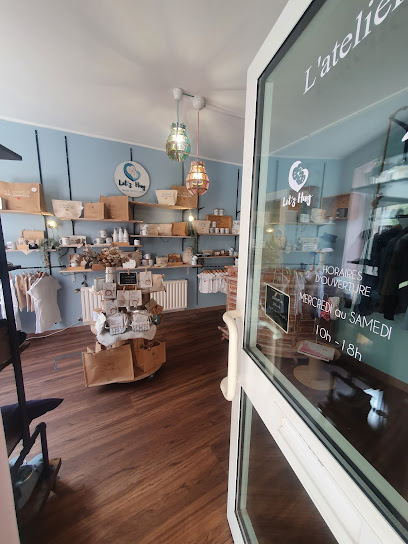
Essential bars & hidden hideouts
Mad About Perú
Experience the rich flavors of Peru at Mad About Perú, a top Peruvian restaurant in Dudelange offering authentic dishes in a warm atmosphere.
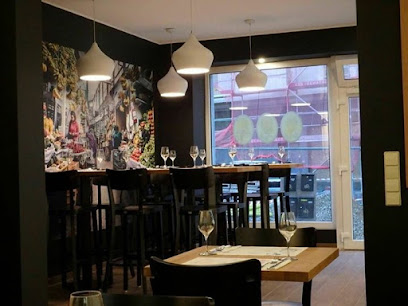
Why not
Discover the lively charm of Why Not Bar in Dudelange, where great drinks and a vibrant atmosphere await every visitor.
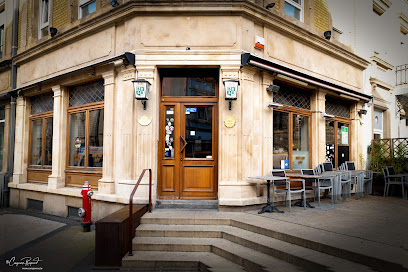
MontChalet Bistro • Brasserie
Experience the charm of Dudelange at MontChalet Bistro, where delicious cuisine meets a welcoming atmosphere in a delightful dining experience.
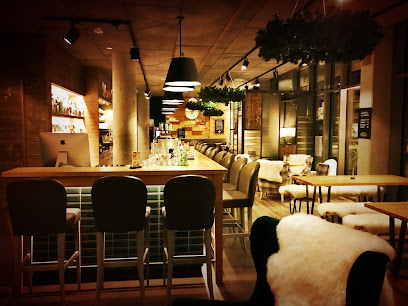
Hôtel, Restaurant Brasserie La Charbonnade
Experience the best of French cuisine in Dudelange at Hôtel, Restaurant Brasserie La Charbonnade, where comfort meets culinary excellence.
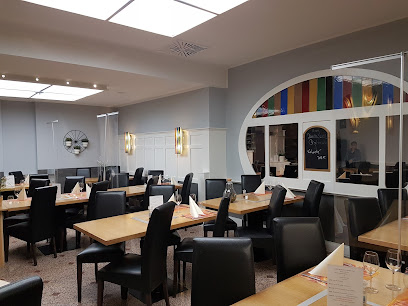
Stones Steak House
Experience the best of fine dining at Stones Steak House in Dudelange, renowned for its premium steaks and inviting atmosphere.
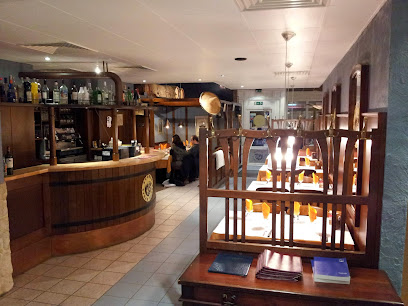
Joker Bar
Discover the lively atmosphere and extensive drink selection at Joker Bar, Dudelange's premier nightlife destination for tourists.
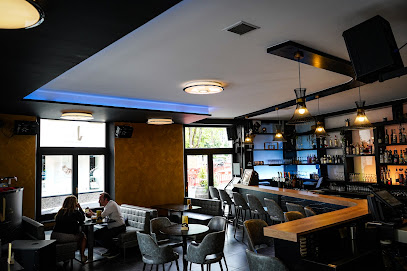
Café de l'Hôtel de Ville - Dudelange
Discover the charm of Dudelange at Café de l'Hôtel de Ville, your go-to spot for local flavors and a cozy atmosphere in Luxembourg.
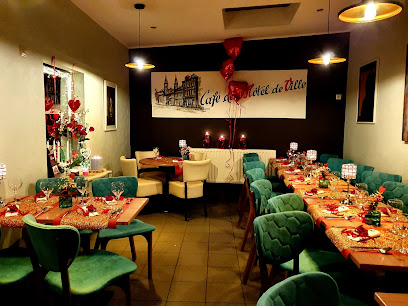
BrazaBraza Dudelange
Discover BrazaBraza Dudelange, where culinary traditions meet modern flavors in a welcoming atmosphere perfect for every occasion.
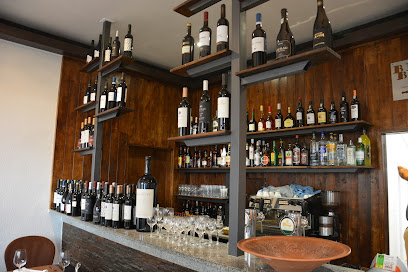
Bar Rio S.A R.L.
Discover the vibrant nightlife of Dudelange at Bar Rio S.A R.L., where great drinks and an inviting atmosphere await every visitor.
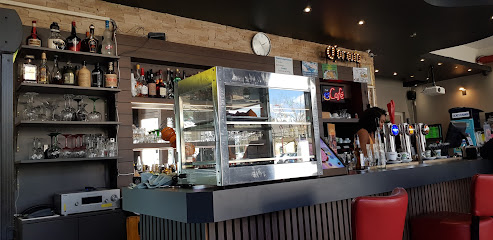
Café Big Ben
Discover the vibrant atmosphere of Café Big Ben in Dudelange, where flavorful hamburgers, refreshing cocktails, and relaxing hookah meet.
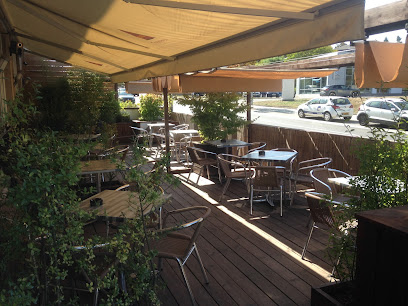
Taverne Mont-Saint-Jean
Discover the heart of Dudelange at Taverne Mont-Saint-Jean, a cozy pub offering local cuisine and a vibrant atmosphere for all visitors.
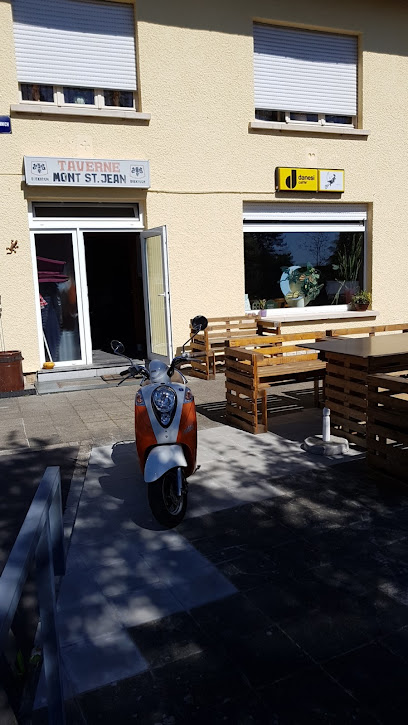
Pub daddy
Experience the lively atmosphere and extensive drink selection at Pub Daddy, Dudelange's favorite bar for locals and tourists alike.
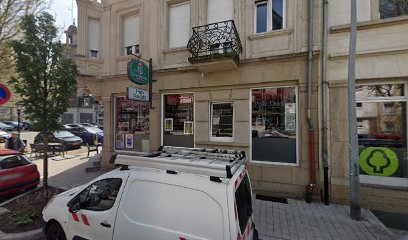
Jimmy's Burgerhouse
Experience the vibrant atmosphere and mouthwatering burgers at Jimmy's Burgerhouse in Dudelange, a perfect blend of fun and flavor.
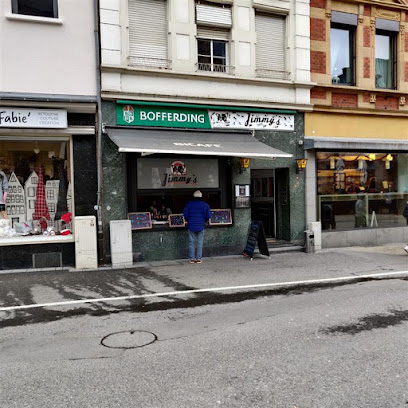
Café du Gymnase
Experience the lively atmosphere of Café du Gymnase in Dudelange, where delicious small plates and live music create unforgettable moments.
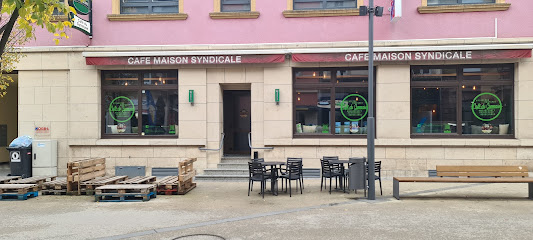
Local Phrases
-
- HelloMoien
[mwɛn] - GoodbyeÄddi
[ædi] - YesJo
[jo] - NoNeen
[nin] - Please/You're welcomeW.e.g./Gär gesch
[veg/jɛr ɡɛʃ] - Thank youMerci
[mɛʁ.si] - Excuse me/SorryEntschëllegt
[ɛnt.ʃɛləxt] - How are you?Wéi geet et dir?
[veɪ ɡeɪt ɛt diːr] - Fine. And you?Gutt. A dir?
[ɡʊt ɑːn diːr] - Do you speak English?Schwätzt Dir Englesch?
[ʃwɛts diːr ˈɛŋlɪʃ] - I don't understandEch verstinn net
[ɛχ fəʃtɪn nɛt]
- HelloMoien
-
- I'd like to see the menu, pleaseEch géif gär d'Menü gesin
[ɛχ ɡeɪf ɡɛr deɪˈmeːnyː ɡəˈzɪn] - I don't eat meatEch iess keng Fleesch
[ɛχ iːs kɛŋ flɛʃ] - Cheers!Prost!
[pʁɔst] - I would like to pay, pleaseEch géifen gär bezuelen
[ɛχ ɡeɪfən ɡɛr bəˈt͡swɛln]
- I'd like to see the menu, pleaseEch géif gär d'Menü gesin
-
- Help!Hëllef!
[ˈhɛləf] - Go away!Gitt fort!
[ɡɪt fɔrt] - Call the Police!Rufft d'Police!
[ʁʊft də pəˈliːs] - Call a doctor!Rufft en Dokter!
[ʁʊft ən ˈdɔktɐ] - I'm lostEch hunn mech verluer
[ɛχ hʊn mɛχ fəɐˈlwiːʁ] - I'm illEch si krank
[ɛχ siː kʁaŋk]
- Help!Hëllef!
-
- I'd like to buy...Ech géif ... kafen
[ɛχ ɡeɪf ... ˈkaːfən] - I'm just lookingEch kuck just
[ɛχ kʊk jʌst] - How much is it?Wéi vill kascht et?
[veɪ fɪl kaʃt ɛt] - That's too expensiveDat ass ze dreier
[dat as t͡se ˈdʁaɪɐ] - Can you lower the price?Kënnt Dir den Präis erofsetzen?
[kœnt diːr dən pʁaɪs ˈeːrɔfˌzɛtsən]
- I'd like to buy...Ech géif ... kafen
-
- What time is it?Wéi spéit ass et?
[veɪ ʃpaɪt as ɛt] - It's one o'clockEt ass eng Auer
[ɛt as eŋ ˈaʊɐ] - Half past (10)Englesch (10) virun Hallef
[ˈɛŋlɪʃ (tɛn) vɪˈʁʊn ˈhaləf] - MorningMuer
[mʊər] - AfternoonNomëtteg
[nɔmɛtəɡ] - EveningOwend
[ˈoːvənt] - YesterdayGëschter
[ˈɡəʃtɐ] - TodayHaut
[ho] - TomorrowMuer
[mʊər] - 1Eent
[eːnt] - 2Zwei
[tsvaɪ] - 3Dräi
[dʁaɪ] - 4Véier
[ˈveɪər] - 5Fënnef
[ˈfənəf] - 6Sechs
[zɛks] - 7Siwwen
[ˈsiʊn] - 8Aacht
[aːxt] - 9Néng
[nɛŋ] - 10Zéng
[t͡sɛŋ]
- What time is it?Wéi spéit ass et?
-
- Where's a/the...?Wou ass e(n) ...?
[vu as ən] - What's the address?Wat ass d'Adress?
[vat as dəˈdɹɛs] - Can you show me (on the map)?Kënnt Dir mir dat weisen (op der Kaart)?
[kœnt diːr miːr dat vaɪzən (op dəʁ kaːt)] - When's the next (bus)?Wéini ass de nächste(n) (Bus)?
[veɪni as də ˈnɛkstən bʊs] - A ticket (to ....)Ee Billett (no ....)
[eː bɪˈlɛt (no)]
- Where's a/the...?Wou ass e(n) ...?
History of Dudelange
-
The history of Dudelange dates back to ancient times, with evidence of early settlements in the region. Archaeological findings suggest that the area was inhabited during the Roman period, with remnants of Roman villas and artifacts providing a glimpse into the life and culture of the time.
-
During the medieval period, Dudelange began to take shape as a significant settlement. The town was first mentioned in historical records in the 12th century. The construction of the fortified castle of Dudelange on Mont Saint-Jean in the 13th century marked a pivotal development, serving as a strategic stronghold and a symbol of feudal power in the region.
-
The Industrial Revolution brought dramatic changes to Dudelange, transforming it into an industrial powerhouse. In the late 19th and early 20th centuries, the town became a hub for the steel industry, attracting workers from across Europe. The establishment of the steel mills led to rapid urbanization, economic growth, and significant demographic changes, shaping the modern identity of Dudelange.
-
Dudelange played a notable role during World War II, with the local population actively participating in the resistance against Nazi occupation. The town's strategic location made it a focal point for military operations, and its residents endured hardships and displayed remarkable resilience. The liberation of Dudelange in September 1944 was a significant event, marking the end of the occupation and the beginning of recovery.
-
In the post-war period, Dudelange experienced significant economic and cultural development. The decline of the steel industry prompted a shift towards diversification and modernization. Today, Dudelange is known for its vibrant cultural scene, with numerous festivals, art exhibitions, and cultural institutions enriching the community. The town's commitment to preserving its heritage while embracing contemporary arts and culture is evident in its dynamic urban landscape.
-
Dudelange boasts several museums and heritage sites that offer insights into its rich history. The Musée Régional des Enrôlés de Force provides an in-depth look at the impact of World War II on the local population. The Centre National de l'Audiovisuel (CNA) is another key institution, highlighting the town's cultural contributions in photography, film, and media. Additionally, the remnants of the medieval castle on Mont Saint-Jean provide a tangible connection to Dudelange's medieval past.
Dudelange Essentials
-
Dudelange is easily accessible from Luxembourg City, which is approximately 20 kilometers away. The nearest international airport is Luxembourg Airport (LUX). From the airport, you can rent a car, take a taxi, or use public transportation to reach Dudelange. Trains run frequently from Luxembourg City to Dudelange, making it a convenient option for travelers.
-
Dudelange boasts an efficient public transportation system, including buses and trains. The city is well-connected, and most attractions are within walking distance. For easier mobility, consider renting a bicycle, as the city is bike-friendly. Taxis are available but tend to be more expensive. Driving is also an option, with car rental services readily available.
-
The official currency in Luxembourg is the Euro (EUR). Credit and debit cards are widely accepted in hotels, restaurants, and shops. ATMs are easily accessible throughout Dudelange for cash withdrawals. It is advisable to carry some cash, especially for smaller establishments that may not accept cards.
-
Dudelange is generally safe for tourists. However, it is always wise to remain vigilant and take standard precautions, such as avoiding poorly lit areas at night and keeping an eye on your belongings in crowded places. There are no specific high-crime areas targeting tourists, but staying aware of your surroundings is always recommended.
-
In case of emergency, dial 112 for immediate assistance. This number connects you to emergency services, including police, fire, and medical help. Dudelange has a local police station and medical facilities, including pharmacies for minor health issues. Ensure you have travel insurance that covers medical emergencies.
-
Fashion: Do wear comfortable and weather-appropriate clothing. Avoid overly casual attire when dining in upscale restaurants. Religion: Do respect local customs and traditions, particularly when visiting churches; dress modestly and maintain a quiet demeanor. Public Transport: Do be respectful and offer your seat to elderly passengers. Avoid loud conversations and eating on public transport. Greetings: Do greet people with a handshake and maintain eye contact. Greetings are typically polite and formal. Eating & Drinking: Do try local specialties and be polite in accepting food and drink offers. Don't refuse hospitality, as it is considered impolite.
-
To experience Dudelange like a local, visit the weekly markets where you can find fresh produce and local goods. Engage with locals, as they are friendly and often eager to share insights about their city. Take a hike in the nearby Haard, Hesselbierg, and Staebierg nature reserves for stunning views and a peaceful retreat. Don't miss the National Mining Museum to understand the town's industrial heritage.
Trending Landmark in Dudelange
-
Monument of Remembrance
-
Place de la Constitution
-
Parc Le'h
-
Parc Le'h Adventures Sàrl
-
Parc Emile Mayrisch
-
Cottage Logis Hôtel - Restaurant
-
Monument to Dicks and Lentz
-
Statue of the Grand Duchess Charlotte
-
Enigmo Escape Rooms
-
Saint Martin Kierch
-
Château Fort Le Mont-Saint-Jean de Dudelange
-
D-Summit
-
Monument national des Mineurs
-
Parc Le'H Dudelange
-
Goethe plaque
Nearby Cities to Dudelange
-
Things To Do in Luxembourg City
-
Things To Do in Remich
-
Things To Do in Arlon
-
Things To Do in Grevenmacher
-
Things To Do in Diekirch
-
Things To Do in Echternach
-
Things To Do in Vianden
-
Things To Do in Wiltz
-
Things To Do in Clervaux
-
Things To Do in La Roche-en-Ardenne
-
Things To Do in Nancy
-
Things To Do in Durbuy
-
Things To Do in Spa
-
Things To Do in Dinant
-
Things To Do in Liege







